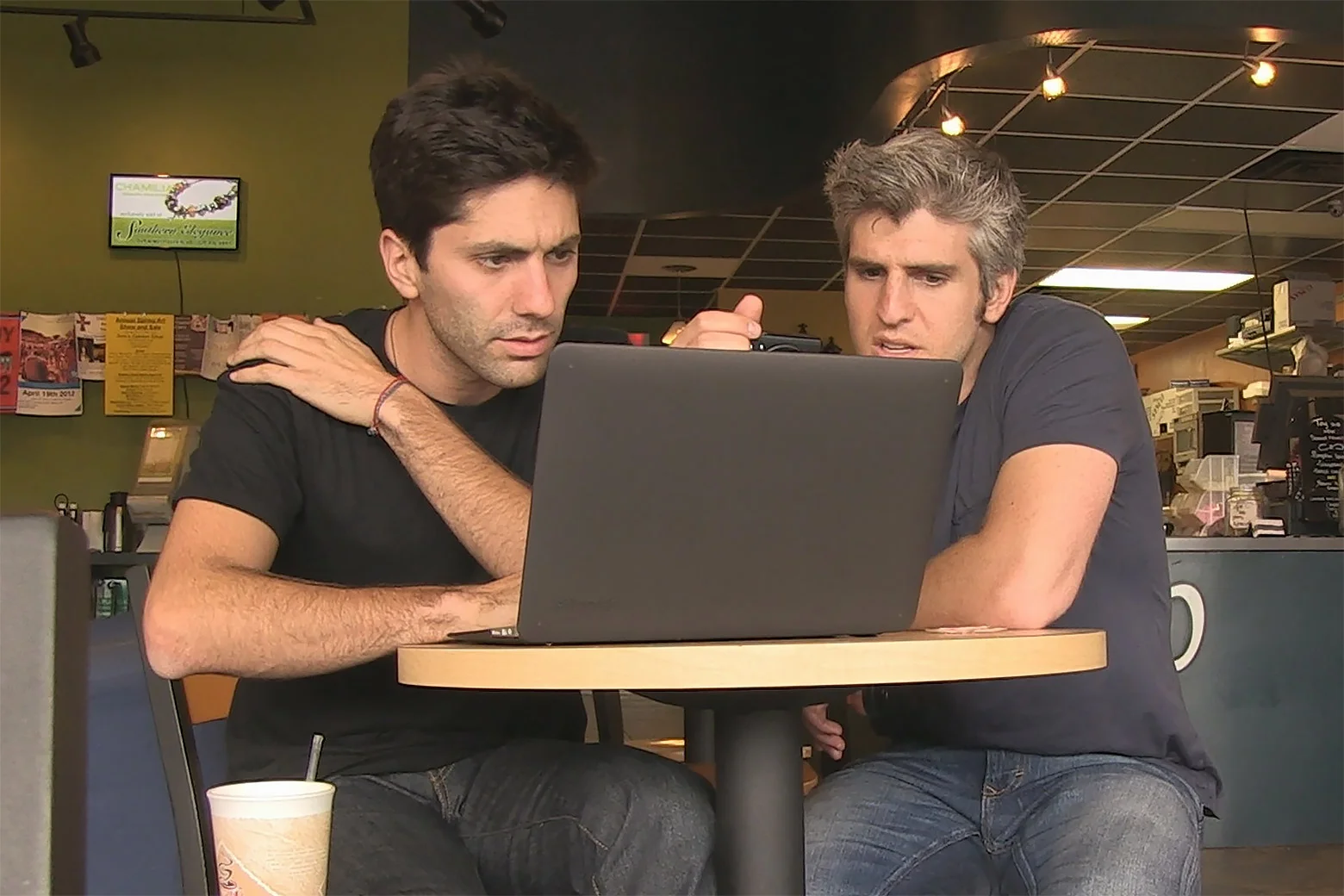
When people ask who inspired me to be a journalist, the name that always pops into my head is Nev Schulman. It was through Schulman and his early internet culture film–turned–TV series Catfish that I learned how to protect myself online. Growing up, I had an abstinence-only perspective on the internet, courtesy of my parents; I was warned not to believe anything I saw and not to meet anyone I chatted with. But of course I stumbled onto websites I didn’t intend to and received messages I didn’t ask for. Hours of watching Schulman and his co-hosts uncover the webs of lies strangers spin online made me an expert at recognizing internet red flags without having to contact an MTV production to get myself untangled.
After nine seasons over 12 years, MTV has canceled Catfish. I’m not surprised: The show gave millions of people the tools to do exactly what its hosts did. I’ve reverse-image-searched many questionable Facebook profile pictures, paid for reverse-phone-lookup directories to trace suspicious numbers, and tracked down addresses of my high school teachers out of sheer boredom, all because of a series on the same network as Ridiculousness.
The show attracted negative attention at times. In 2018 crew members were accused of sexual misconduct by a former participant; in 2014 Schulman revealed in his memoir that he was “tossed out” of Sarah Lawrence College for punching a woman. But viewers pushed through the controversies because Catfish was salacious and revealing. Catfish predated the rabid online culture surrounding true crime fandom, the dominance of dating app culture, and the advanced tactics of scam culture. The film and show that followed coined the term catfishing, which is the creation of a fake identity or online persona to deceive, scam, or manipulate other parties. It’s a term that everyone—even my online-wary parents—now knows, and one that helped define this internet era.
It all started when a 24-year-old boy from New York fell in love online. Schulman’s “girlfriend” was skinny, artsy, a child prodigy—Tumblr’s perfect manic pixie dream girl. But after thousands of messages and phone calls coupled with broken promises to meet or video chat, it became deeply, unsettlingly clear to Schulman that the love of his life was not who she said she was. In 2010 Schulman’s brother Ariel and Henry Joost made a documentary called Catfish, and it became one of the preeminent pieces of internet filmmaking. It carried the tone of The Blair Witch Project, with retina-scorching blue-light imagery of spicy Facebook messages, underscored with looming music, handheld footage of sketchy back roads, and the ultimate heartbreaking payoff that Schulman’s beloved was, in fact, a 39-year-old woman.
Each episode of the MTV series starts with an innocent, well-intentioned person who started chatting with a stranger online, usually through Facebook. And instead of asking for money or trying to steal their victim’s identity, all this liar wants is to fall in love. The show’s nearly 300 episodes have featured people in committed, sometimes yearslong relationships via only breathy phone calls and overtly romantic messages. Schulman and co-host Max Joseph ask their subject a series of telling, rudimentary questions: Why haven’t you met? He’s a model, so he travels a lot! Why haven’t you video chatted? His laptop camera is broken! Why are you so devoted to someone you’ve never met? She’s the love of my life.
Catfish asks: What if your rom-com was actually a horror film? In a way, the show is about romance: The protagonists of these episodes usually reach out to producers because they can no longer take the ambiguity of not meeting their online partner. They feel an all-consuming desire for a person who has offered every possible excuse to avoid meeting face-to-face. And this love, once exciting, has now become a trap. Schulman and Joseph are enlisted to end the rom-com and press Record on the horror film.
It’s fitting to me that Catfish is ending in 2025, when authenticity is the rarest online currency. Many of the show’s catfishes admit they created hyperidealized versions of themselves on the internet as an act of fantasy world–building. This phenomenon has now transferred to our reliance on artificial intelligence, including to chatbots that have been used to create deeply predictive and frictionless romantic relationships with their users. MTV’s catfishes were selling and seeking companionship, care, and attention. The difference now is that we know there isn’t a real person on the other side of the chat. In a way, this might be healthier: LLM daters aren’t expecting a supermodel-gorgeous lover to walk through their door.
In the first episode of the series, from 2012, an 18-year-old woman is coming to terms with her sexuality by catfishing other women as a male model. She refuses to take accountability for the hurt she’s caused. Then, in a separate meeting with Schulman, she reveals that she was bullied in high school and started catfishing as a way to control her narrative. To not be a loser in her own story. Some version of this reasoning would be repeated by catfishes for more than a decade—and I never got tired of watching it. Catfish taught me that although some people online are more innocent than others, many of us reach online to control what we can. And even if you are the victim of a catfish, that catfish was the victim of some person or system too.
I wouldn’t fret too much for hosts Schulman and Joseph. Joseph left the show in 2018 after directing a feature film starring Zac Efron and Emily Ratajkowski. Schulman has decided to become a real estate agent, and I would love nothing more than to see him on Selling Sunset. Nonetheless, I will mourn this era of Catfish. The show has given us at least three iconic moments that still appear on my timeline today. Now, if they could only find a way to stop scam phone calls, that’d be a reboot worth watching.



